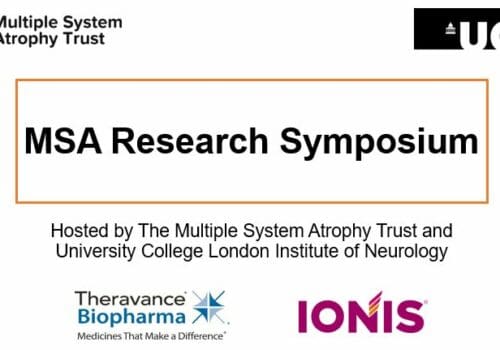Challenging times
Changes to benefits, government cuts, NHS reform, new innovations – these are challenging times for people affected by MSA. In his first blog, Andy Barrick, the Trust’s Head of Services, explains how we’ll do whatever we can to support you.
People affected by MSA are living against a backdrop of major changes to benefits and a squeeze on public funding – this is set to get even more challenging.
By 2020 over half of councils’ expenditure in England and Wales is expected to be on social care. The introduction of a care cap that would limit individual care costs to £72,000 in a person’s lifetime appears to have been shelved. This could mean additional pressure on councils to fund care and payment of the proposed Living Wage may also increase costs.
Many people with MSA can get what is called Continuing Healthcare which is free, but some people do not know about this or struggle to receive it. We want to know if people with MSA are having difficulties getting sufficient social and health care and perhaps we could help or signpost you in the right direction. We’ll be following wider issues with care and support with interest and will keep you in the loop.
Before the Summer Budget we urged the Chancellor to recognise the importance of particular benefits such as Attendance Allowance, Personal Independence Payments and Carers Allowance for people living with long term conditions like MSA. Although there will be other significant benefit cuts as a consequence of the Budget, these specific benefits look to have been relatively well protected, which we of course welcome. We will again keep an eye on this issue though, as it is of vital importance to people struggling with the extra costs that living with MSA involves. And remember if you need any help, let us know by emailing support@msatrust.org.uk.
We were alarmed by the recent report by the National Audit Office which said that despite an increase in NHS expenditure of over 200% in recent years, health services for people with neurological conditions were still of inconsistent quality, with many authorities unable to track what services were being provided. We are members of the Neurological Alliance and we have co-signed a letter to the Parliamentary Public Accounts Committee urging them to ensure effective and high quality services are provided from expenditure for people with neurological conditions.
On a positive note, in mid-July the UK Government launched The Accelerated Access Review. Whilst this sounds complicated it is in simple terms a review of how the NHS can speed up access to drugs, diagnostic tests and devices that could help change and improve the lives of NHS patients. So for example it might look at getting new drugs to patients much more quickly through speeding up the testing or licensing processes. Or it might be using digital technologies to support patients, such as in the case of some people with MSA speech apps for ipads that can help people communicate. We will be involved in this but you can get involved too by following this link: https://engage.dh.gov.uk/acceleratedaccess/custom_layout/patients/
Finally, I want to emphasise that with the limited resources we have we’re committed to being led by you, the people we serve. Let us know if you’re having problems and if we can’t help we’ll try and signpost you to someone who can.
Disclaimer: The views and opinions expressed in the blogs published on these pages are those of the authors and do not necessarily reflect the official policy or position of the MSA Trust.




